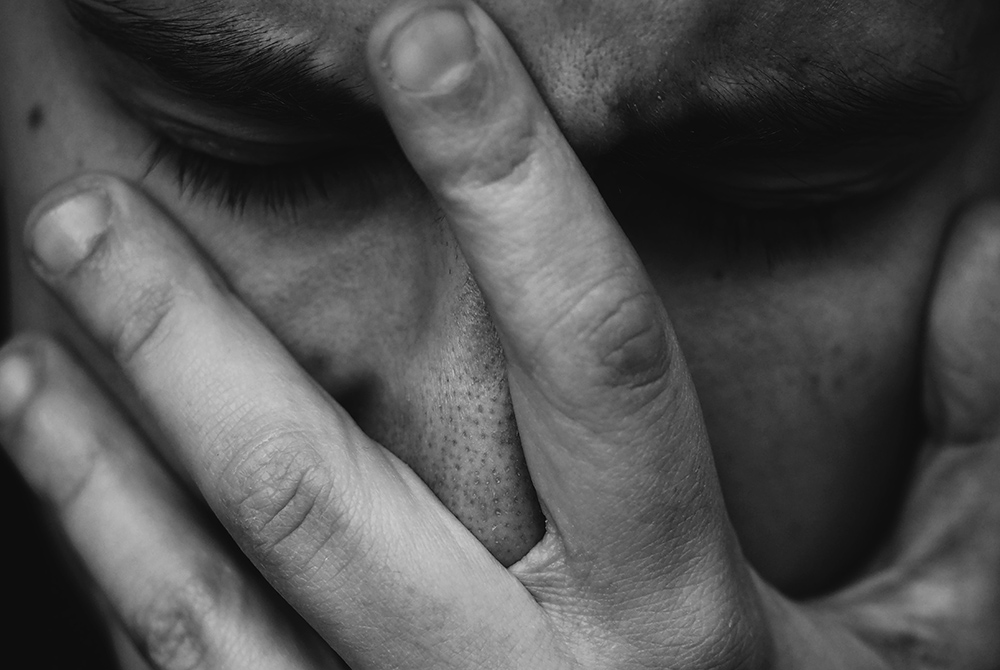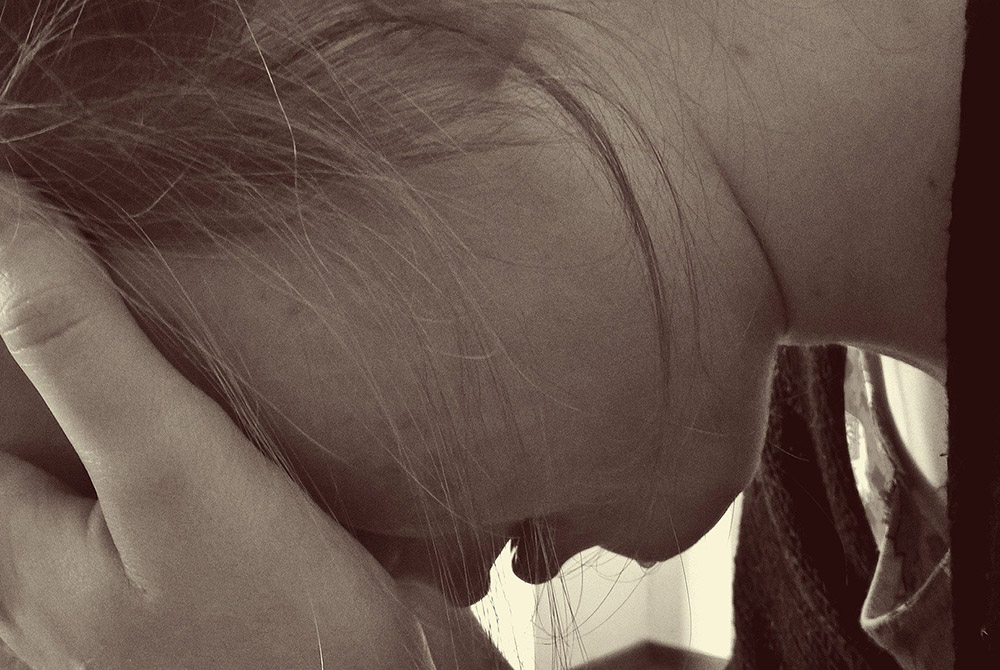
(Unsplash/Adrian Swancar)
There is a very poignant moment in Scripture that gets little exegesis, it seems, but it touches the deepest nerve of a people in mourning for the loss of the character of their nation. Like our own.
It is the picture in Luke 19 of Jesus weeping over Jerusalem — the city on the hill that was the heart and soul of the nation.
"Jerusalem," Jesus cries, "you killers of the prophets." And then he speaks to the troubled city, "If only you had known the path to peace."
It is a cry that strikes too close a chord to be ignored in the modern world. The mind revolts at the thought of it. A time to weep? Not here. This is the good time generation, the land of beach parties and early retirement, the world of aspirin and analgesics, of marijuana, alcohol and cocaine. On this planet, psychic numbing has been raised to high art. Suffering is not welcome here.
But grief comes nevertheless.
Years ago, I wrote a book called There Is A Season. Ecclesiastes the sage says, "There is a time for everything under heaven: a time to weep and a time to laugh." It gave me great pause then and it prods my soul even more now. The implications are enormous.
The truth is that tears fall despite the fact that we resist them so strongly. Weeping and wailing are heard everywhere in the land of milk and honey — the unemployed who want basics they can't have now that COVID-19 has locked them out of work; the sick and the lonely, who are powerless to save themselves from a virus of invisible particles, and fear they will surely die alone; the evicted and the powerless, whose lives are faceless and unrecognized; the privileged and the well-to-do ,who have it all and still have nothing that really satisfies; and maybe most of all, our young people, who are looking at their future and seeing only ruination. No work available. Everything they took for granted, gone.
Advertisement
Indeed, few of us see our weeping as a spiritual gift or a matter of divine design. But we are wrong. Weeping is a very holy and life-giving thing. It sounds alarms for a society and wizens the soul of the individual. Ecclesiastes may be nowhere more correct than here. There is definitely a time for weeping. If we do not weep on the personal level, we shall never understand humanity around us. If we do not weep on the public level, we are less than human ourselves.
The Rabbi Hanoch of Alexander said it well: "The real exile of Israel in Egypt was that they had learned to endure it." There are, in other words, some things that ought not to be endured. There are some things worth weeping about lest we lose our sense of self. We must always cope with evil, of course, but we must never adjust to it. We must stay eternally restless for justice, for joy. Restless enough to cry out in pain when the world loses them.
There are some things about which if we do not weep, we will betray the human race. "If we had been holier people," John Templeton wrote, "we would have been angrier, oftener." Anger, disillusionment, tears explode in the midst of humanity to give us all a chance to become more human than we could ever have been without them.
If we do not allow ourselves to face and feel pain, we run the risk of entombing ourselves in a plastic bubble where our lies about life shrink our hearts and limit our vision. It is not healthy, for instance, to say that massive poverty is sad but "normal." It is not right to say that sexism is unfortunate but "necessary." It is not human to say that war is miserable but "inevitable." It is not healthy to insist that our deep hurts and cutting disappointments and appalling losses and great personal mistakes do not exist. On the contrary. To weep tears of frustration about them may be to take our first real steps toward honesty, toward mental health, toward a life that is worth living. Not a hoax and not fake news.

(Pixabay/Counselling)
Weeping, in fact, may be the best indicator we have of what life is really all about for us. It may be only when we weep that we can come to know best either ourselves or our worlds. What we weep for measures what we are. What we weep over indicates what others may expect of us in life. It was when Jesus wept over Jerusalem that the die was cast, not for crucifixion, but for the blaze of energy and the boldness of stature that spent everything in him to change what, in the end, though it could not be changed, could not be ignored either. Tears, you see, are more than sadness.
When a person weeps, it is not a private matter. Tears demand our attention. Weeping fractures the social protocol to such a degree that we realize, no matter how remote we ourselves may be from the feelings that provoked another's tears, that nothing will ever be quite the same between us again until the breach is repaired and the rupture is healed. Tears warn us that the foundations of a relationship which we may have dealt with so cavalierly in the past are now in danger. Tears beg for a human response and dare not be denied.
Weeping signals that it is time to change things in life because for someone, somehow, life has now become unmanageable. "Though all afflictions are evil in themselves, yet they are good for us, because they discover to us our disease and tend to our cure," John Tillotson, a 17th-century Archbishop of Canterbury wrote. Without our tears, we have no hope of healing because we do not begin to confront the anguish.
If ever there were proof of those words, it is in the United States of America, now, today, here.
In a matter of months, our place in the universe of nations has changed — America has gone from leader of the free world to pathetic shadow of our former global self. Weak, chaotic, out of control and at the mercy of a playschool monarch, we have become a tattered remnant of a once great forward-looking nation.
There is a deep sadness in the United States these days as people watch its international stature melt to the miniscule. There is a barely muffled anger at the train wrecks that have become our most sacred political institutions. There is growing shock and mistrust that comes with realizing that when a president goes rogue, there is actually no obvious process of how to end it unless Congress itself has the integrity, the awareness, to deal with the gravity of the situation.
Indeed, Jesus wept over the city he had come to warn of the creeping degradation of the nation but which was rejecting him. He was weeping over the folly of those who were unwilling to accept and support the idea that a new age had arrived.
We talk a lot these days about bringing the country back together. Maybe we ought to give some thought to learning from those countries before us who have decided that restoring trust and confidence may well depend on starting with a truth and reconciliation process at the highest level. It may be our only "path to peace" — if we want to rediscover the old, worthy, solid American spirit that got us beyond the Civil War, the Great Depression, the streams of unemployed immigrants and too many World Wars.
From where I stand, it seems to me that we have to reboot the nature of the country that we are.
And to do that, we may need to do a bit of weeping ourselves.
[Joan Chittister is a Benedictine sister of Erie, Pennsylvania.]
Editor's note: We can send you an email alert every time Joan Chittister's column, From Where I Stand, is posted to NCRonline.org. Go to this page to sign up.





